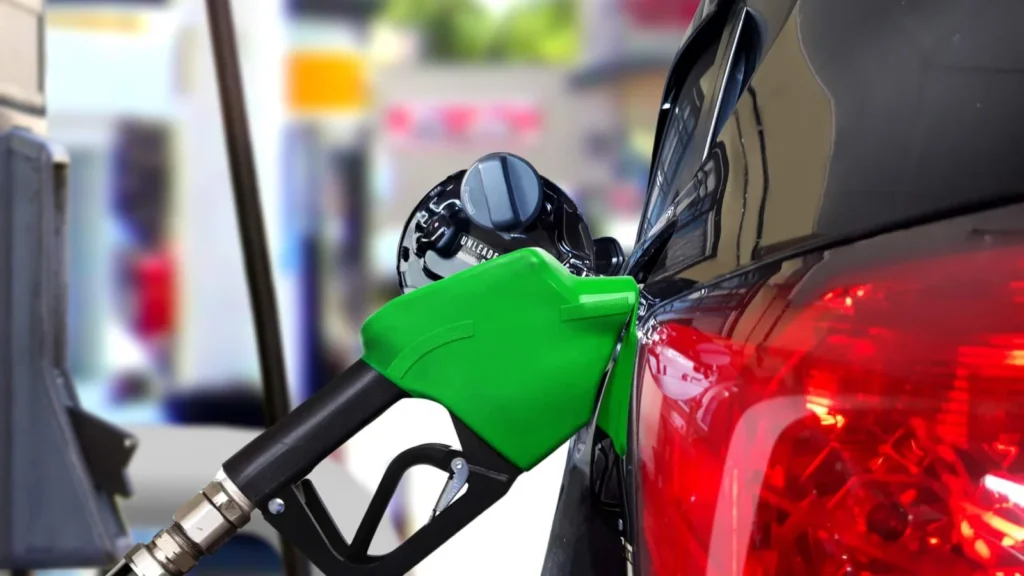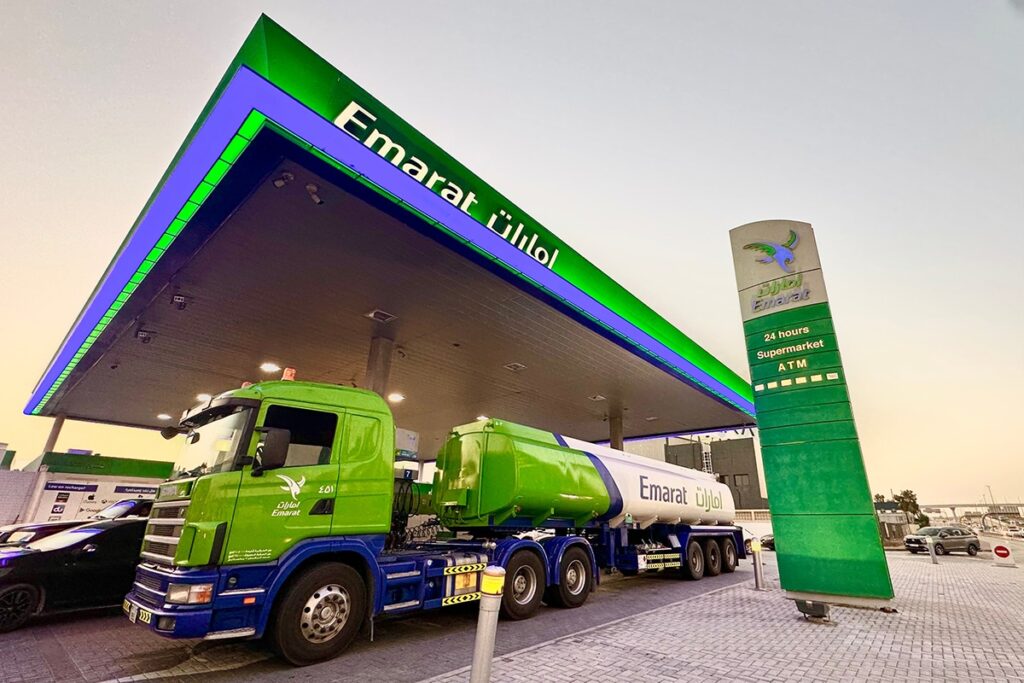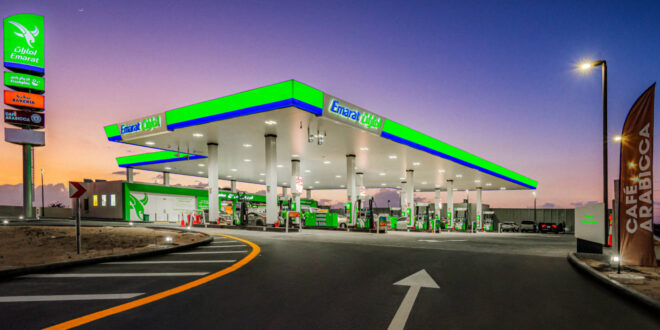When the world influences the future of sustainable energy and economic change, gasoline prices are one of the most important factors affecting consumers, businesses, and governments around the world. In the United Arab Emirates (UAE), one of the world’s leading oil producers, gasoline prices are a critical aspect of everyday life, affecting everything from personal expenses to the prices of goods and services. As global oil prices continue to fluctuate due to issues with geopolitical events, supply chains, and market dynamics, the UAE government, working with oil authorities, aims to announce gasoline prices in April 2025 in the coming days. Each month, the Emirates Committee on Fuel Price evaluates various metrics to determine gasoline and diesel tariffs. This directly affects both personal transportation costs and business costs. The whole economy. According to this model, governments no longer define fixed fuel prices, so they can fluctuate based on global market conditions. Prices will be determined by a special committee that includes representatives of the most important energy and government sectors. A shift to a more market-oriented pricing system is being implemented to reflect global crude oil prices and to maintain the sustainability of the UAE fuel sector.
The system considers the following important factors:
Global Crude Oil Price:
The price of crude oil in international markets, such as Brent, is one of the main factors. Oil prices are strongly influenced by factors such as production decisions and the political instability of the most important oil producers. It also plays a role in pricing between the UAE dirham and the US dollar. Impact on gasoline prices for April 2025. The announcement of gasoline prices in April will affect several important factors that could affect the high fuel prices for next month.
Global oil prices can have the most direct impact on UAE gasoline prices. Several factors mean that the global oil market has experienced considerable volatility during 2024, including global political instability, pension disruptions, and pandemic fluctuations in demand. However, with progress in 2025, analysts are expected to predict the relative stability of global oil prices, which will result in conservative growth in emerging countries due to global demand and economic growth. Rising oil prices will likely lead to higher gas prices in the United Arab Emirates. 😉 Conversely, global oil prices can be stable or fall, and the UAE may record a decline in gasoline prices, which could reduce consumer load.
As one of the world’s leading oil producers, the UAE is an important member of the Organization of Oil Exporting Countries (OPEC). OPEC decisions, particularly those related to reducing production allocation and supply or increasing it, can have a significant impact on global crude oil prices. For example, if OPEC decides to limit production to stabilize the oil market or raise prices, this decision could lead to an increase in the costs of crude oil. ;)This is reflected in the VAE gasoline prices. Oil production environment.

Economic Recovery and Global Demand:
Global demand for petroleum and petroleum products, including gasoline, is closely linked to the broader economic recovery following the pandemic and subsequent closures. In 2025, as many countries continue to recover from the economic obstacles caused by COVID-19, the increase in oil demand will increase with increasing industrial activity, production, and travel. This could cause upward pressure on UAE gasoline prices. The higher the demand for petroleum products, the higher the price. To reduce state spending and better adjust fuel prices to global market trends, the UAE government has gradually removed gasoline subsidies over the years. However, governments are keeping an eye on the wider economic situation, and inflationary pressures could affect local fuel prices. If inflation rises significantly, gasoline prices could rise as part of a total adjustment to maintain the financial stability of the UAE.
Conversely, if inflation rates are under control or if the government decides to introduce new measures to stabilize the cost of living, gasoline prices can remain stable or even decline. The UAE government’s ability to compensate for monetary policy to meet consumer needs is critical for petrol price design in April 2025. The transition to alternative energy sources will take years, but efforts to rely on the country will diminish for fossil fuels in the long term. Nevertheless, the short- to mid-term will likely continue to view gasoline as a central component of the UAE energy mix.
These trends still appear, but they could affect the government’s future pricing approaches, which have potential benefits for consumers, as fuel consumption decreases over time. While gas prices in the United Arab Emirates are affected by many factors, the national decision to switch to a dynamic pricing system has made it more flexible and transparent to match local prices globally. Given the direct impact of gasoline prices that affect consumers, industry, and the economy, the pressing announcement will undoubtedly have a much greater impact on UAE businesses and everyday life. National energy landscape.
You can also read this: An online shopping festival organised by the Dubai Festivals and Retail Establishment takes place from March 27 to 30 this year.
Consumer Impact:
The most direct impact of a dynamic gasoline pricing system is that consumers are exposed to monthly fuel prices. For those relying on private cars for daily commuting, rising gas prices can lead to an increased cost of living. The UAE government speaks about the fact that fuel prices remain relatively affordable compared to other parts of the world, but rising gasoline prices can still bear a burden on households. The monthly announcements of the UAE Fuel Course Committee provide insight into the impact of global oil prices, exchange rates, and domestic factors. This transparency helps build trust and ensures that the public is informed about the reasons for price adjustments. Given the global advancements in sustainability and renewable energy sources, gasoline prices can encourage individuals to consider alternative transportation options such as electric vehicles (EVs) and invest in energy-efficient technologies for homes and businesses. This increases the costs of businesses involved in the supply chain and allows them to be passed over to consumers in the form of rising product prices.
Similarly, companies that rely on vehicles to provide services, such as courier services and transport companies, can undermine profit margins if fuel prices rise without increasing service charges. As the UAE continues to invest in sustainable infrastructure and energy solutions, the industry is encouraged to be innovative and adapt to a changing energy environment.
Dynamic Gasoline Price System in the United Arab Emirates: Consumer, Industry, and Business Impact in 2025
Gasoline prices are a critical factor in the daily lives of people around the world. In countries such as the United Arab Emirates (UAE), gasoline prices not only affect individuals’ cost of living but also industries, businesses, and the economy as a whole. In the case of the UAE, known for its huge oil reserves and one of the world’s largest oil exporters, UAE fuel prices have been controlled by the government in the past. However, the country has changed dramatically in recent years with the implementation of a dynamic gasoline pricing system. This change has made fuel prices more flexible and consistent with trends in the global market. This provides transparency and reflects the fluctuations in the global oil market. The decision to use a dynamic pricing system not only changed the defined gasoline prices but also redesigned the national energy landscape.

In this article, we will consider how dynamic pricing systems will affect consumer lives, the broader economy, and businesses in the UAE, while at the same time affecting the future impact of gasoline prices. However, the system was not sustainably healthy given global oil price fluctuations, increased state spending, and efforts to harmonize fuel prices with the wider market. In August 2015, the UAE addressed these challenges and switched to a dynamic pricing system to ease the government’s financial burden. The government no longer defines gasoline and diesel prices, but by a special committee that includes representatives from key energy and government departments. The committee will check global crude oil prices, refiner margins, and domestic economic factors to ensure fuel prices meet global market trends while maintaining consumer fairness and transparency. Oil prices are affected by geopolitical events, global supply and frequency dynamics, and production decisions made by OPEC (Oil Export Organization).
All changes in oil prices are reflected directly in gasoline prices in the United Arab Emirates. All variations in these costs affect the price of the pump. Stronger dirhams can lead to lower gasoline prices, but weaker dirhams can lead to increased fuel costs. As the UAE focuses on tax sustainability, gasoline prices are consistent with the country’s broader economic strategy.
Conclusion:
The relationship between the UAE Dirham (AED) and global UAE fuel prices is a critical factor in determining local gasoline costs. Dirham strength plays a crucial role in this equation as the UAE continues to match gasoline prices with global market trends through its dynamic pricing system. A stronger dirham could lead to a lower gasoline price as it increases the purchasing power of the currency when purchasing oil in international markets. Conversely, weak dirhams result in higher fuel prices as the cost of oil in the US dollar increases compared to the local currency. The dynamic pricing system ensures that fuel prices reflect both global oil trends and domestic economic factors. By adapting prices to market conditions, the UAE can avoid the long-term financial burden associated with subsidy maintenance and encourage consumers and businesses to consider energy efficiency and alternative solutions. Whether the dirhams will strengthen or weaken in the coming months, the impact on gasoline prices remains a key factor in observing and affecting everything from individual household budgets to broader economic strategies. Ultimately, the dynamic pricing system serves as a valuable tool to ensure that national energy policies are flexible, sustainable, and responsive to global economic realities.




